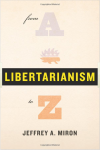 China is widely viewed as a “threat” to the US because of its perceived rapid and unstoppable economic growth. This is, in my view, doubly confused. First: if the premise were true, this would be good, not bad. Second: I don’t think China is in such great shape. Unfortunately.
China is widely viewed as a “threat” to the US because of its perceived rapid and unstoppable economic growth. This is, in my view, doubly confused. First: if the premise were true, this would be good, not bad. Second: I don’t think China is in such great shape. Unfortunately.
Some free market economists think otherwise. Peter Schiff “predicts that China will overtake the U.S. in terms of Gross Domestic Product before 2020.” Jim Rogers thinks “China will likely constitute tomorrow’s most powerful nation-state.”
I’ve been working for years now for a company with factories and extensive dealings in Taiwan and China. It’s been my opinion for some time that China is a primitive basket case. Land is leased, not owned. The communist party corruption is everywhere. The Asian mentality is far different than the western one; they are less innovative, more subservient and servile, more order-following, more collectivist and less individualistic. Poverty and peasantry are rampant. Asians are far more racist and superstitious than Americans (everyone is more racist than Americans in my experience). You have to get permission for everything. There are currency controls. Contracts are not respected–they are signed because they are viewed as red tape and then they start being renegotiated the next day. And on and on.
In my view, America is, for all our faults, still, by far, the strongest and best large economy in the world. Who can match the US? Canada is too small. Japan is not quite our size and has its own problems. Europe is like an older, more kleptocratic version of the US–and is probably second best in the world. South America is a basket case of banana republics. Africa is even worse. Russia and Central Europe?–mired in pessimism and corruption and the tendrils of the wreckage of communism. Of the rest, I think India has a better chance than China, for two reasons: they speak English, and they inherited the English property rights system–unlike in China where you still have to lease land from the state for 50 years instead of buying it. And I think India is a basket case too, unlikely to improve much for many decades. So the US is and will remain preeminent, in my view–despite all our problems. (See also Jonathan Bean’s America’s Hidden Strength: Babies, Immigration; Joel Kotkin, Why America Will Still Lead the World in 2050, Reason.tv; David Brooks Relax, We’ll Be Fine (News of America’s death is greatly exaggerated. In reality, the U.S. is on the verge of a demographic, economic and social revival); and Glimmers of Hope (The fiscal future of the developed world looks bleak, but the British coalition should give us hope.) Unfortunately, this will allow our parasitical state to maintain its warfare-welfare state (see my post Hoppe on Liberal Economies and War).
An American friend of mine living in China sent me some of his thoughts, which I provide, with editing, and anonymously, below:
China is [screwed], I tell you. This place is one big pile of poo. Jim Rogers and Peter Schiff are wrong, at least about China. Jim Chanos is right! [See also Jim Rogers: China not in a bubble, Chanos couldn’t spell China; China May ‘Crash’ in Next 9 to 12 Months, Faber Says. Also note: Mark DeWeaver, who has written for the Mises Institute before, recently gave a speech about Chinese monetary policy. There’s some interesting meat in both the audio and corresponding slides.]
…
Don’t Bet on ChinaRead More »




